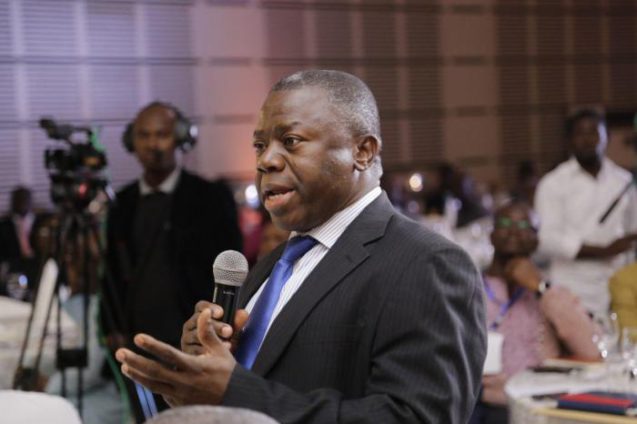Former President of the Ghana Association of Banks, Alhassan Andani, says the institutions of state must not lose sight of their responsibility to raise red flags at the right time.
According to him, the recent banking sector crisis and its subsequent clean-up operation which cost the country an estimated GH₵10.98bn ($2.1bn), equivalent to just over 3% of the nation’s GDP in 2019, could have been mitigated had state institutions raised red flags on time.
He noted that their long silence despite the canker staring them in the face is what had led to the so-called crisis.
“So when people say banking crisis as we had and they collapsed, most of it wasn’t crisis. We saw that these entities that failed were simply not doing banking; they were not doing banking as we know it.
“That’s why I am saying we should never compromise institutional discipline for keeping the society clean, keeping the economy clean, and making sure that people can believe where they’re going to put money,” he said on JoyNews’ PM Express Business Edition.
“So we had all these people gathering money from people and promising interest rates that were out of this world. And for those of us who were in regular banking knew that there wasn’t any kind of investment that you could deploy borrowed funds, I mean, clients’ deposits to earn the kind of interest rates that they were promising people who were depositing monies with them.
“So straight away, institutions were there, whether it was SEC, whether it was Bank of Ghana, whether it was other governmental agencies, they were there that knew that this was not right but we allowed it. So for me it wasn’t crisis. We allowed thievery, we allowed just outright wrongdoing to persist for a very long time,” he explained further.
In 2017, the Akufo-Addo-led government implemented the financial sector clean-up initiative to prevent the financial sector from collapsing.
This followed an asset quality review in 2015 and 2016 by the Bank of Ghana. The report noted that there were severe challenges with solvency, liquidity and asset quality in the country’s banking industry.
According to reports, about nine banks, 23 savings and loans companies, 386 microfinance companies and 53 fund management institutions were collapsed.
Many employees lost their jobs due to the financial sector clean-up.
Latest Stories
-
MTN Ghana begins 21 Days of Y’ello Care with focus on digitalisation in rural communities
8 minutes -
Professor Adu-Gyamfi backs constitutional reforms, calls for return of power to the people
17 minutes -
Ghana’s health system is ill-structured and lacks discipline – Prof Adu-Gyamfi
18 minutes -
We let ourselves down – Antwi reflects on Kotoko’s title miss
23 minutes -
Health Minister owes nurses an apology; his actions are killing patients – Former GRNMA President
25 minutes -
‘Great start at Kotoko but injuries held me back’ – Emmanuel Antwi
28 minutes -
Reject ‘Apor’ and other malpractices – Accra Mayor cautions BECE candidates
28 minutes -
2025 BECE: 10 arrested for malpractices
37 minutes -
FIFA Ranking: Black Queens drop to 66th globally and now 6th in Africa
1 hour -
ofi Ghana improves access to education with new schools and supplies in 5 cocoa communities
1 hour -
World Bank u-turn on Uganda loan ban ignites Africa’s LGBTQ+ rights crossroads
2 hours -
At least 242 on board Air India flight to London that crashed after takeoff in Ahmedabad
2 hours -
Fitch changes global oil sector outlook to deteriorating; predicts average oil price of $65 for 2025
2 hours -
The Plant Plug GH to host third Sip and Soil Experience on June 28
2 hours -
UK-Ghana Chamber of Commerce celebrates Fidelity Bank MD, Julian Opuni
2 hours

